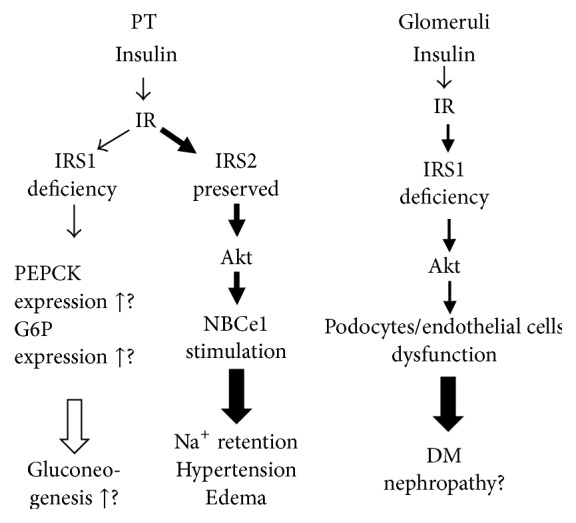Figure 2.

Insulin signaling in insulin resistance in the kidney [10, 11, 16–21]. In the PT, the expression of IRS1 is suppressed while that of IRS2 is preserved. IRS1 signaling deficiency may cause the upregulation of G6P and PEPCK. In this condition, the inhibition of gluconeogenesis does not work sufficiently, causing enhanced gluconeogenesis and hyperglycemia. On the other hand, the expression of IRS2 is preserved, causing stimulation of sodium reabsorption via NBCe1, leading to sodium retention, hypertension, and edema. In the glomeruli, IRS1 signaling is also impaired similar to the PT. This causes podocyte dysfunction, possibly leading to DM nephropathy. Both the PT and glomeruli have selective insulin resistance, with differences between signaling via IRS1 and signaling via IRS2. IR: insulin receptor, IRS: insulin receptor substrate, FoxO1: Forkhead box protein O1, NBCe1: sodium bicarbonate cotransporter type 1, G6P: glucose-6-phosphatase, and PEPCK: phosphoenolpyruvate carboxykinase.
